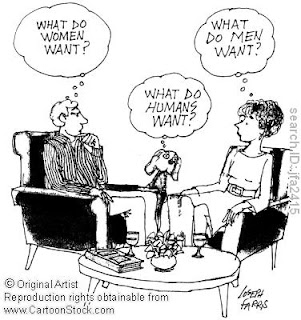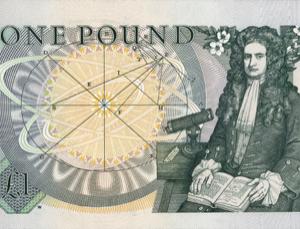"Let's give this new Hollande guy a prostate exam." more here
Thursday, May 31, 2012
The sexes may be more alike than we thought.
"For most of history, men's and women's different roles in life were assumed to be mainly innate and unalterable. This was challenged in the west with the rise of feminism in the second half of the last century. Perhaps the different behaviours of boys and girls arose because of cultural norms: parents praising boys for romping and smashing toy cars, for instance, while expecting girls to be more reserved and play with their dolls.
Around the same time, though, new light was being shed on the biology of gender. In the womb, we all start out more or less female, until sometime between six and 12 weeks of pregnancy. Then, in male fetuses, a gene on the Y chromosome causes certain cells to make testosterone, which leads to the development of the penis and testicles. Female fetuses do not have this "testosterone bath" and so develop female reproductive organs.
But the sex hormones' influence is not limited to our gonads: they also play a key role in the brain's development, influencing the architecture of various neural circuits. As well as establishing these anatomical differences, the sex hormones presumably affect our behaviour as adults too, as their receptors have been found in many brain regions.
Understanding the ways in which male and female brains differ has become a hot topic in neuroscience, particularly in the past decade with the growth of brain scanning as a research tool."
By Kayt Sukel via New Scientist / continue reading

By Kayt Sukel via New Scientist / continue reading
Day of the city of Zagreb
Zagreb is the capital and the largest city of the Republic of Croatia. It is in the northwest of the country, along the Sava river, at the southern slopes of the Medvednica mountain.
The name Zagreb appears to have been first recorded in 1134 in a document relating to the establishment of the Zagreb bishopric around 1094, although the origins of the name Zagreb are less clear. The Croatian word "zagrabiti" translates approximately to "to scoop", which forms the basis of some legends. One Croat legend says that a Croat ban (viceroy) was leading his thirsty soldiers across a deserted region. He drove his sabre into the ground in frustration and water poured out, so he ordered his soldiers to dig for water. The idea of digging or unearthing is supported by scientists who suggest that the settlement was established beyond a water-filled hole or graba and that the name derives from this.
According to another old legend, a city ruler was thirsty and ordered a girl named Manda to take water from Lake Manduševac (nowadays a fountain in Ban Jelačić Square), using the sentence: "Zagrabi, Mando!" which means, Scoop it up, Manda!.
Some sources suggest that the name derives from the term 'za breg' or 'beyond the hill'. The hill may well have been the river bank of the River Sava (the modern Croatian word "breg" or "brijeg", meaning "hill", originally meant "river bank"), which is believed to have previously flowed closer to the city centre. Another possible origin is the term "za grabom", meaning "behind the moat", as the city was heavily fortified since its beginnings.
To mark the Day of the City of Zagreb, Zagreb Tourist Board gives to its citizens and visitors "Zagreb stiklec" - city tour through the stories and legends about Zagreb, on Thursday, 31st May.
To mark the Day of the City of Zagreb, Zagreb Tourist Board gives to its citizens and visitors "Zagreb stiklec" - city tour through the stories and legends about Zagreb, on Thursday, 31st May.
Sammie the seal takes it easy in his very own dinghy
When it comes to relaxing, you’ve got to do whatever floats your boat.
For Sammie the grey seal, it means soaking up the sun in his very own leisure craft.

Wednesday, May 30, 2012
The Big Bang Theory Quotes
Sheldon: At my age do you know how I'm statistically most likely to die?
Leonard: At the hands of your room mate?
Sheldon: An accident.
Leonard: That's how I'm going to make it look.
Raj: I don't like bugs, okay? They freak me out.
Sheldon: Interesting. You're afraid of insects and women. Ladybugs must render you catatonic.
more here

Leonard: At the hands of your room mate?
Sheldon: An accident.
Leonard: That's how I'm going to make it look.
Raj: I don't like bugs, okay? They freak me out.
Sheldon: Interesting. You're afraid of insects and women. Ladybugs must render you catatonic.
more here
Why Pointy Eyebrows Look Evil
Researchers at the University of Warwick found that human beings are wired to see downward pointing triangles -- as detected in eyebrows or a pointy chin -- as threatening. Their study, published in the journal Emotion, sheds some light on why so many evil cartoon characters are drawn with these features. "These shapes correspond with our own facial features," explained University of Warwick's Elisabeth Blagrove, "and we are unconsciously making that link."

Can you train yourself to be an optimist?
Cognitive psychologist Elaine Fox from the University of Essex, UK, explores the ways in which we can retrain our brains to view the world with a positive outlook in her book Rainy Brain, Sunny Brain.
New Scientist asked her why some people see the glass as half empty, and what techniques science offers us to change that perspective.

New Scientist asked her why some people see the glass as half empty, and what techniques science offers us to change that perspective.
Beware of your smile: it may betray you.
Researchers at the Massachusetts Institute of Technology have developed a way to discern the sincerity—and level of frustration—associated with your grin.
By analyzing measurements of the subtle differences between a smile generated by frustration and one born out of actual happiness, the computer program has so far shown a better success rate than human observers in figuring out the emotional state of their subjects.

Checking Radioactivity? There’s a Phone for That
With various parts of northeastern Japan still closed to visitors more than a year after a major earthquake and tsunami crippled the Fukushima Daiichi nuclear power plant, radiation is a constant worry among many Japanese.
So what better way to capitalize on that fear than with a newfangled smartphone?

Doc Watson dies
Arthel "Doc" Watson, the beloved flat-picking guitar genius and one of the last direct links to the pre-recording era of traditional American folk music, has died after a fall and colon surgery. He was 89.
Dylan honored by Obama
President Barack Obama gave the United States' top civilian honor on Tuesday to musician Bob Dylan, novelist Toni Morrison and 11 other people he described as his heroes because of their powerful words, songs and actions.

Tuesday, May 29, 2012
Eurozone crisis in cartoons
Guardian cartoonist Kipper Williams is having a good eurozone crisis. He aims to capture the 'tragi-comedy' of the crisis, with cartoons that are 'often silly, fanciful but a whisker away from reality'. Tackling yields, credit default swaps and eurobonds in a cartoon isn't easy, he says, and his aim is to bring the crisis 'back down to earth'. He has clearly thrived on the twists and turns of the Greek crisis, playing on what he describes as the 'handy, accessible and familiar' classical myths and legends. And he has an uncanny knack of anticipating events, imagining a return to the drachma last June – a fanciful idea at the time but now under serious consideration.
Here are some of his best cartoons of the crisis.

Here are some of his best cartoons of the crisis.
The world’s smallest cowboy
Little Royce Gill, from Upper Horton in western New South Wales, Australia should be kicking up tantrums as he goes through the terrible twos but instead he is kicking up the dust on his six-year-old pony Maybelline.
It is perhaps no surprise the young cowboy has taken to the sport, which involves racing around barrels at high-speed and requires precise levels of horsemanship, as he is the seventh-generation rodeo rider in his family.

Newton saved the UK economy £10 million
A statistical analysis suggests that Isaac Newton saved the UK economy the equivalent of millions of pounds by implementing measures to standardise the country's gold coins.
Although Newton is famous for his theory of gravity, he also spent the last 30 years of his life running the UK's Royal Mint, where the country's coins are manufactured. Ari Belenkiy, a mathematician at the British Columbia Institute of Technology in Vancouver, Canada, has now compared coins produced before and after Newton's stint at the mint to study the effect of measures he introduced to prevent rich goldsmiths from exploiting a currency loophole.
The quality of coins produced by the Royal Mint is assessed each year at the Trial of the Pyx, a ceremony begun in the 13th century. As coins are minted, a few from each batch are placed in a small chest, or pyx, and later weighed to determine how far they stray from the required standard.
This was essential because if coins weighed more than their face value, canny goldsmiths would buy them from the Mint, melt them down, then sell them back to the Mint at a profit, a process known as culling. "Neither counterfeiting nor clipping was involved," says Belenkiy.
"The culling was a vocation of the rich!" / more

"The culling was a vocation of the rich!" / more
Monday, May 28, 2012
Gamify your sweat and make films more exciting
Getting really sweaty is not normally a good thing. But imagine if doing so could make the film you're watching more exciting - or even change what happens next. Technology firm Sensum is launching a smartphone app that will use your sweat to make life far more entertaining.

Astronomy mistake picked up by nine-year-old
When nine-year-old Daniel Smith read in a Telegraph astronomy guide last month that Neptune, the most distant of the eight planets, was a mere 4.5 million km from our closest star he instantly recognised that something didn't add up.
A little sleuthing around the relative location of the other planets soon confirmed his suspicion and brought about an explanation – an unfortunate typo by the Daily Telegraph.
Our guide, one of two astronomy booklets released last month, should in fact have said 4.5 billion miles, rather than million – a fact which Daniel picked up but several pairs of grown-up eyes did not.
Daniel, who lives in New Zealand with his family, explained his reasoning in a letter to his grandfather Don Smith, a Telegraph reader from Felixstowe, Suffolk, who had sent him the books as a present.
He wrote:
"Dear grandad, I really liked the solar system books you got us. They were very interesting! But I noticed a mistake. "It said Neptune was 4.5 million km when mercury was 57.9 million km. I found the problem by looking at the other planets. It turns out that Neptune was supposed to say 4.5 billion km from the Sun." He signed off the letter "Love, Daniel," adding: "PS, give grandma a kiss from me!"
Mr Smith forwarded the note on to the Telegraph .

"Dear grandad, I really liked the solar system books you got us. They were very interesting! But I noticed a mistake. "It said Neptune was 4.5 million km when mercury was 57.9 million km. I found the problem by looking at the other planets. It turns out that Neptune was supposed to say 4.5 billion km from the Sun." He signed off the letter "Love, Daniel," adding: "PS, give grandma a kiss from me!"
Mr Smith forwarded the note on to the Telegraph .
Subscribe to:
Posts (Atom)






















